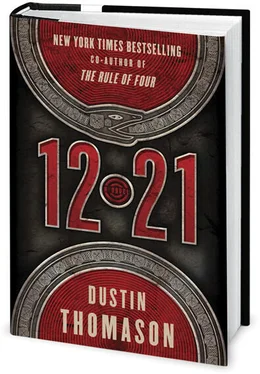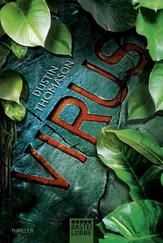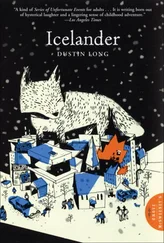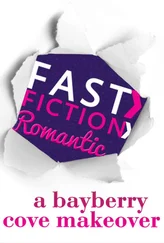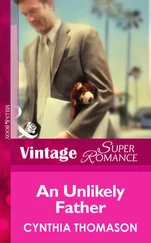Stanton had followed her to the lobby. He’d stayed at the museum with them overnight while she, Victor, and Rolando reconstructed the final portion of the codex. Chel was grateful he had; even after everything they’d discovered, his presence here was somehow a comfort.
“There’s evidence of cannibalism in every civilization,” he said. “On the island of Papua New Guinea, in North America, the Caribbean, Japan, central Africa, from the time all our ancestors lived there. Pockets of genetic markers in human DNA all over the world suggest that, early on, all our ancestors ate human corpses.”
Chel looked back into the oculus. The stacks of the library were just visible below, thousands of rare volumes, sketches, and photographs from around the world. Each one with its own complicated history.
“Have you heard of Atapuerca?” Stanton asked.
“In Spain?”
“A site there is where they discovered the oldest prehuman remains in Europe,” he told her. “Gran Dolina. They found skeletons of children who’d been eaten. The conquistadores’ ancestors were doing it long before yours were. To be desperate enough to do unthinkable things to feed your family is to be human. Since the beginning of history, people have done what they had to do to survive.”
* * *
HALF AN HOUR LATER, as dusk gathered, Stanton sat with Chel, Rolando, and Victor, perched on the stools scattered around the lab where they’d been working virtually nonstop. He tried to take in the words the king had spoken to the scribe:
I and my closest minions have gained such power from feasts on flesh, having consumed more than twenty men in the three hundred suns past. Now Akabalam has divined that he wishes to concentrate the strength of ten men in every man of our great nation.
Stanton pictured the ancient kitchen in which they stood. It was eerily reminiscent of the slaughterhouses and rendering facilities he had been investigating for a decade. The line between cannibalism and the disease was clear: Mad cow happened because farmers fed their cows the brains of other cows; VFI happened because a desperate king fed prion-infected human brains to his people.
“It really could’ve survived that long in the tomb?” Rolando asked.
“Prions could survive millennia,” Stanton explained. “And it could have been lying in wait inside that tomb. That place was a time bomb.”
That Volcy had set off, no doubt. He’d gone into a tomb, stirred up the dust, and then touched his eyes.
Victor said, “Paktul suggests that only those who ate human meat became sick. Presumably you don’t think Volcy was a cannibal, so how did VFI become airborne?”
“A prion is prone to mutation,” Stanton told them. “It was born to change. A thousand years concentrated in that tomb, it became something else, something even more potent.”
He scanned the page for another passage.
Jaguar Imix and his retinue consumed the flesh of men for many moons in good graces of the gods without being cursed. But whatever god protected them before does so no longer.
They now understood the genesis of the disease, but even Stanton didn’t know exactly how to use the information. Were there answers in the tomb itself ? Two days ago, armed with this, he would’ve tried to convince CDC to authorize a wide search for Kanuataba. He’d called Davies—now back working at the Prion Center—and told him what they’d found. But there were no experiments the team could run using this information. Stanton thought about emailing Cavanagh, but even if she could get past her anger with him, they still didn’t have an exact location to send the team. The Guatemalans would still deny that VFI had come from within their borders, so an official team probably wouldn’t be let in regardless.
And according to the news reports, CDC had things closer to home to worry about: People were slipping out of L.A. by land, air, and sea, and the quarantine wouldn’t hold much longer. Finding the original source would hardly be Atlanta’s top priority. Words written a thousand years ago would not convince them.
“If Paktul and the three children founded Kiaqix,” Rolando said, “I don’t understand why the myth said it was an Original Trio. There are four of them.”
“The oral history isn’t sacrosanct,” Chel said. “There are so many different versions, and they get passed down across so many generations, it’s not hard to imagine them losing a person in the translation.”
Stanton was only half listening now. Something about the sections he’d just been reading stuck in his mind, and he studied them again. In each passage, the king was proud of how long he and his men had been eating human flesh and the power it had given them. Three hundred suns. For almost a year before the king fed his commoners human meat, he and his men engaged in cannibalism, and they’d clearly eaten brains. So why hadn’t they gotten sick? Had the brains they’d eaten been completely free of prion?
Stanton pointed this out to the team. “Within a month of when the human meat is introduced into the food supply for everyone else,” he said, “it makes everyone—including the king and his men—sick.”
“What happened?” Rolando asked.
“Something changed.”
“Like what?” Chel asked.
“The ancients believed bad things happened when the gods weren’t honored,” Rolando said, invoking Paktul’s claim that whatever once protected the king did no longer. “Many indígenas would still tell you disease is a result of the gods’ anger.”
“Well, I would tell you disease is the result of mutated proteins,” Stanton said. “And I don’t believe in scientific coincidences. The king and his men must have eaten a lot more brains in that year than the commoners could have in a couple of weeks, right? The disease suddenly became destructive, and there had to be a reason.”
“You think it got stronger,” Chel said.
Stanton considered. “Or what if their defense mechanisms got weaker?”
“What do you mean?”
“Think of an AIDS patient,” he said. “HIV weakens the immune system and makes it much easier to get sick.”
Victor glanced at his watch. There was something detached about him. Stanton had to wonder where else the man’s mind could be at a time like this.
“So you think something lowered the defenses of the king and his men?” Rolando asked. “Their immune systems got messed up?”
“Or maybe it was the exact opposite,” Stanton said, connections forming. “They’re in the middle of a societal collapse, right? They were destroying all of their resources, burning down the last of their trees, and running out of everything from food to spices to paper to medicine. Maybe something was artificially raising their defense mechanisms before, and then it stopped.”
“Like a vaccine?” asked Chel.
“More like how quinine prevents malaria, or vitamin C prevents scurvy,” Stanton said. “Something holding the disease back without them even knowing. The king says they consumed the flesh of men for almost a year without being cursed. And Paktul thinks it’s because they stopped making offerings to the gods. But what if they actually lost or stopped consuming whatever was protecting them?”
“Where would they have been exposed to this… prevention?” Victor asked, returning to the conversation.
“It could’ve been something they were eating or drinking. Something plant-based, probably. Quinine was protecting people from malaria long before they knew what it was. Penicillium fungi in soil were probably preventing all kinds of bacterial infections before anyone knew about antibiotics.”
They reexamined every word of the translation, scrutinizing each reference to plants, trees, foods, or drinks—anything the Maya consumed before the widespread cannibalism began. Corn breakfast mixtures, alcohol, chocolate, tortillas, peppers, limes, spices. They searched for every reference to anything used medicinally. Anything that could have been protecting them.
Читать дальше
